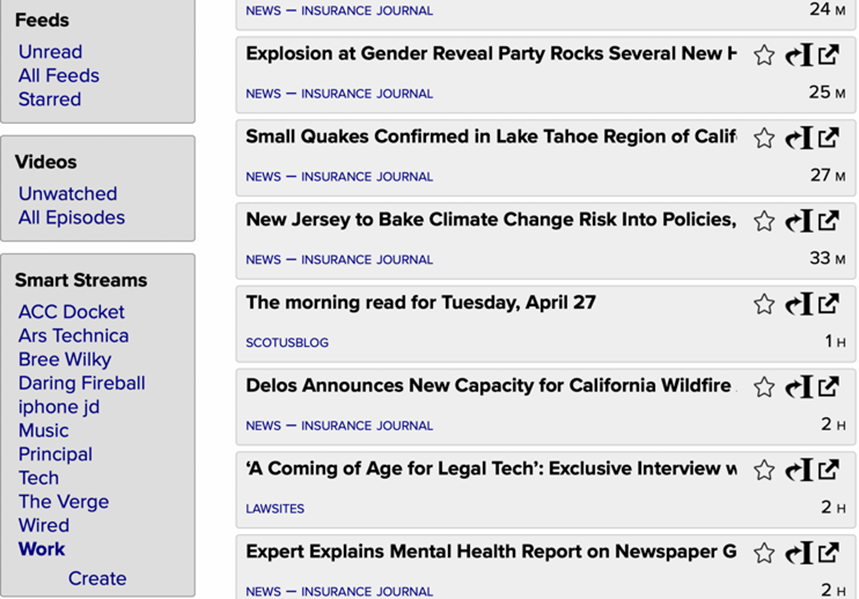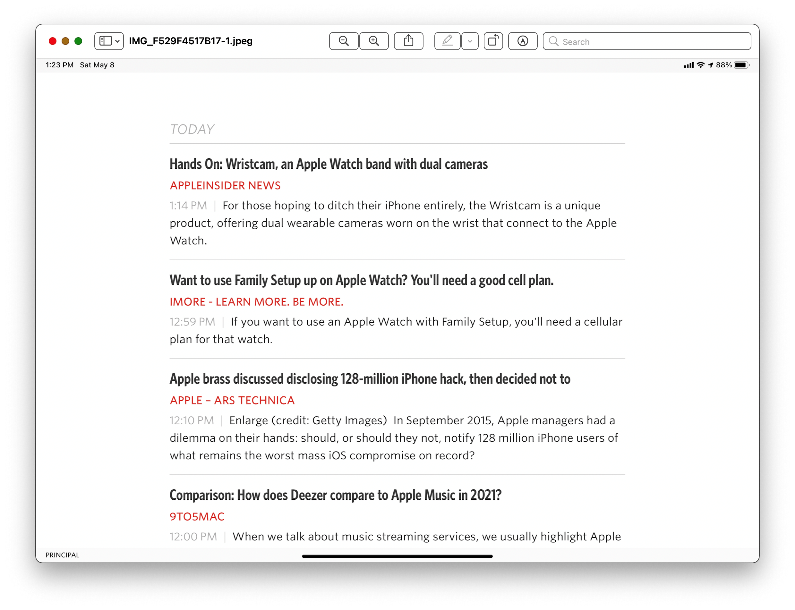Technology is changing rapidly all the time — except when it doesn’t need to. RSS, one of the fundamental creations of the internet, hasn’t needed to change much over the past several decades because it’s such a powerful tool.
What is RSS?
You’ve probably heard the term RSS, and you may even use it without realizing it. RSS was developed several decades ago as a news syndication technology. It enables websites to automatically broadcast updates as they are published. It stands for Really Simple Syndication. If you listen to almost any podcast you are using RSS — it is the distribution mechanism used by most of the podcast industry.
As the name suggests, the way it works is very simple. Websites use RSS to enable certain kinds of apps called RSS aggregators or RSS readers to subscribe to their websites. Some browsers, like Firefox, Internet Explorer, and Safari, and some mail clients like Outlook can also act as RSS aggregators.
If users subscribe to feeds by adding the right URL to their RSS aggregator of choice, any new content from that source will automagically appear in the reader. The newest content is at the top, similar to how your podcasts are displayed.
Why is RSS important?
The internet has been teetering between more open and more closed standards for quite a while. Originally, one of the beauties of the internet was that anyone with the know-how and a computer could publish content to anyone else who wanted to see it and knew how to look, but that has been changing dramatically.
Countries like Russia and China impose rigorous censorship controls over access by their residents. Governments with the best of intentions like the European Union and Australia pass laws that limit the way content is distributed. Companies like Facebook try to lure users into what is effectively a closed garden ecosystem, in which all activity is ultimately subject to management approval.
For those of us who delight in the way the internet has democratized information, any tools that enable individuals to publish their content more easily are breaths of fresh air. RSS is one such tool. Right now, anyone can publish a podcast or broadcast new blog or other content over RSS, and anyone who is interested can subscribe to that content using a podcast app or an RSS aggregator.
You can easily set up an RSS feed for your own or your company’s publications so that interested users can subscribe to it.
How could and should lawyers use RSS?
I’m sure many of you take advantage of the way you can get email alerts if you save a search in Google. Those saved searches — which alert you if new content is found that responds to the saved searches — are great, but
(1) You need to carefully craft the search to make sure it is sufficiently specific, or you may get a lot of garbage results;
(2) You will get results from any sites that publish something that meets your search criteria, whether they are credible sites or not; and
(3) We all get too many emails already.
If you properly set up an RSS aggregator/reader, you can subscribe to just the sites whose content you find valuable and you can create specific folders covering specific topics.
So, for example, I subscribe to the ACC Docket, and have a folder called “ACC Docket” with just RSS feeds from the Docket. But I also have a folder called “Work” that includes a large assortment of different feeds from many different sites, covering topics like insurance, law, legal tech, etc.

As you can see, it displays the headlines of each feed, and each feed also contains the time stamp showing how long ago it was added, with the most recent at the top. You can set the reader to display all feeds, or just those that are still unread, like the one shown.

I can click on any of the headlines in the panel on the right to show more of the content. I can also star any articles I deem particularly interesting, send them to my read it later service, or click the square with the diagonal upward arrow coming out of it to be taken directly to the website.
Because it is simple to enable RSS for almost any site, many websites offer the service. And if there is a site you particularly like that doesn’t have RSS enabled, in many cases you can contact the website’s owner and ask that they add the capability, which is easy to do.
I suggest that you may want to set up your own RSS feeds both for your work and your personal enjoyment. You can easily create folders for different areas of interest. The screenshots above are from the browser on my Mac, but there are even nicer readers on iPad like the app called Unread.


I have been using RSS since the early 2000s or longer, and I hope I never have to stop. Please give it a try. Not only will you find it a useful tool but using it may help keep the internet more open.




